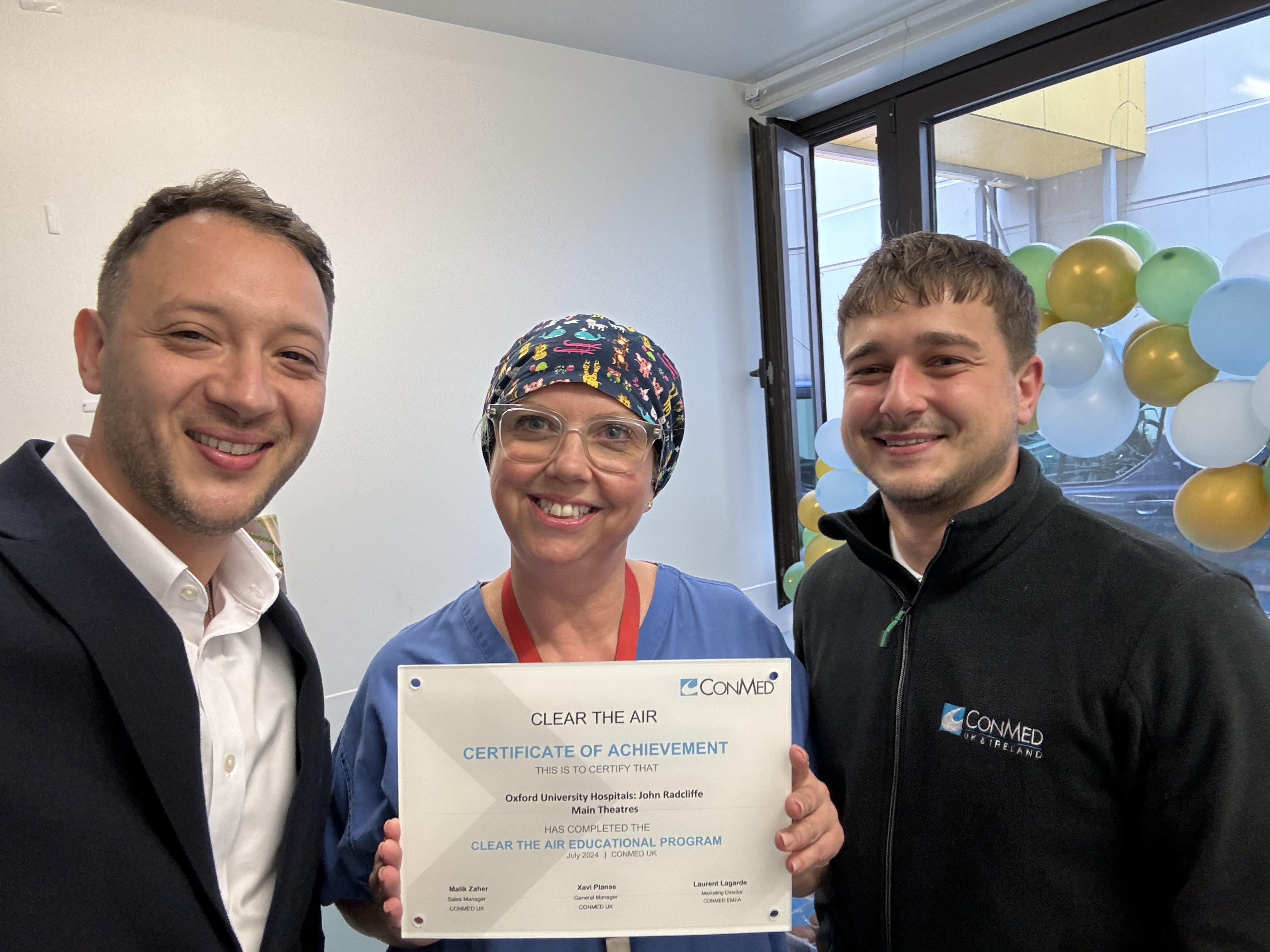Laura Cuthbertson knows all too well the risks that surgical smoke can pose in the OR—to both patients and staff. In this article, she answers some of CONMED’s questions about surgical smoke in hospitals.
The Q&A
What dangers does surgical smoke plume pose to patients?
Surgical smoke contains a variety of hazardous toxic chemicals. Patient safety can be compromised if smoke is not properly captured. Smoke can be re-absorbed by the patient, which could cause postoperative complications
How do the risks of surgical smoke plume to patients compare to theatre staff?
Surgical smoke is harmful to every member of the team where there is exposure to smoke—causing adverse health effect such as respiratory illness.
Are Patients who are operated on under local anaesthesia at greater risk and why?
Patients undergoing local procedures do not have a protected airway. The patient would also be in a theatre [OR] and exposed to smoke equally as the theatre team.
What impact do you believe surgical smoke has to the patient experience in hospital?
If a patient was aware and able to acknowledge the smoke plume, it would create a negative patient experience, even traumatic. Patients are consented for all the possible outcomes, but not the side effects of the devices we use on them.
How To Prevent Surgical Smoke Complications
While surgical smoke can be hazardous to your hospital or practice, we have solutions. First and foremost, a perioperative team should evacuate all surgical smoke. CONMED offers a range of smoke evacuation devices to help keep everyone in the OR safe.
Browse CONMED’s smoke evacuation solutions.
